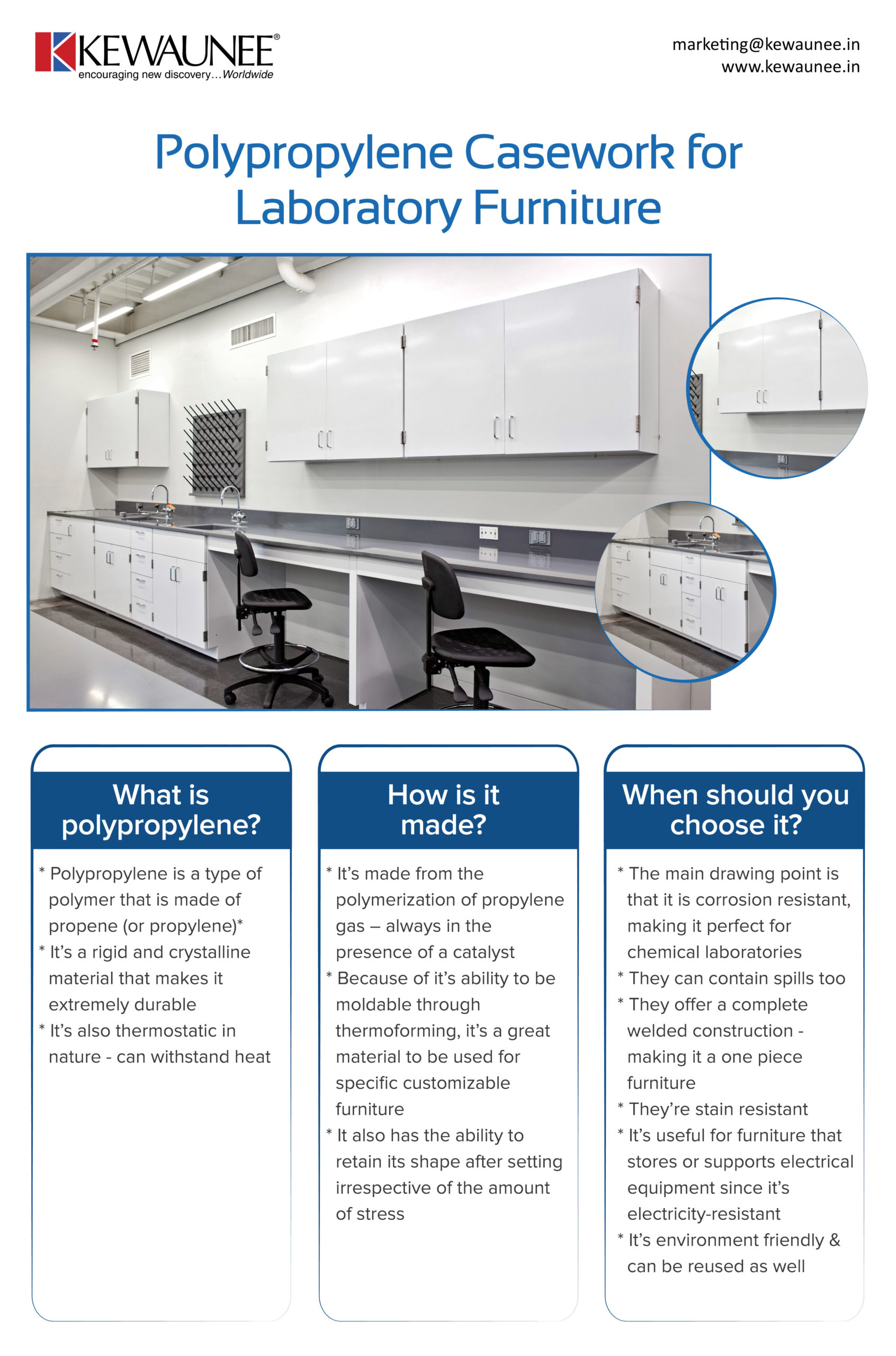Polypropylene Casework for Laboratory Furniture
Using polypropylene casework is widespread in laboratories across the world and for good reasons. They’re resistant to chemicals, stress and even heat, making them extremely suitable for an experimental environment.
In this infographic, we’re explaining the process and the benefits of using a polypropylene casework for your laboratory. At Kewaunee International, we have a wide range of polypropylene casework furniture, which can be viewed here.
| Aspects to consider | Key pointers |
| What is polypropylene? |
|
| How is it made? |
|
| When should you choose it? |
|
Comments are closed.











